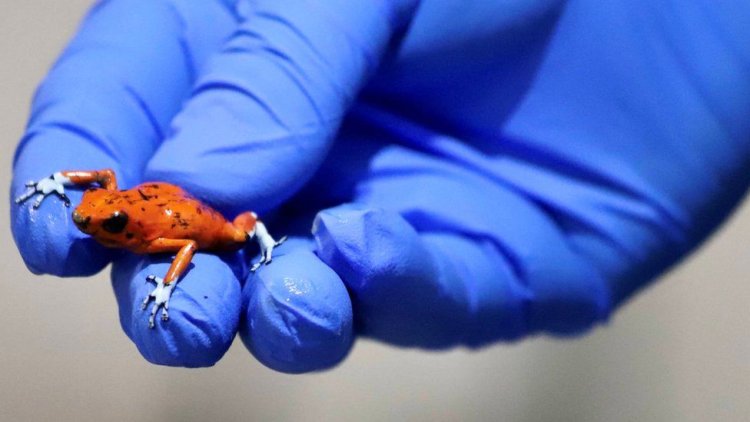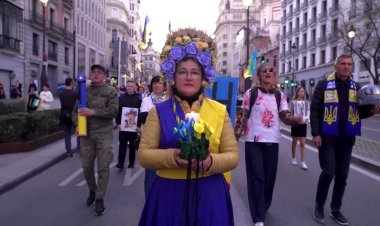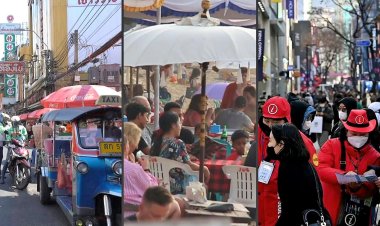Frog Trafficking Foiled in Colombia

A woman has been charged with wildlife trafficking after Colombian police found 130 poisonous frogs in her luggage at Bogotá airport.
The animals were discovered in small film canisters and were dehydrated and stressed, officials said.
The Brazilian woman, who was headed to São Paulo via Panama, said she had been given the frogs as a gift from a local community in southern Colombia.
Local police said the amphibians can fetch up to $1,000 each.
Bogotá Environment Secretary Adriana Soto said the fine for being in possession of on of these frogs could reach $14,300.
Harlequin frogs, also known as poison-dart frogs, measure less than the size of a human thumb.
Their skin glands produce a highly toxic poison which has in the past been used by indigenous people to coat the tips of the darts they use for hunting. It is strong enough to kill small animals.
Harlequin frogs are a critically endangered species which can be found in humid forests along the Pacific coast between Ecuador and Colombia, and in other countries in Central and South America.
Their endangered status makes them highly sought-after by private collectors in international markets, according to local police.
Wildlife trafficking is common in Colombia and across Latin America, a region rich in biodiversity. Amphibians, small mammals and marine animal parts, such as those of sharks, are particularly popular with traffickers.
The police reported that the woman was captured "for the crime of wildlife trafficking" and was left in the hands of the prosecutor's office.
Colombia, one of the most biodiverse countries in the world, suffers from the trafficking of species, especially amphibians, small mammals and parts of marine animals such as sharks.















